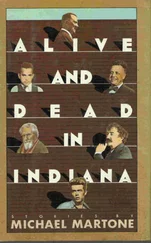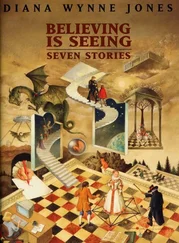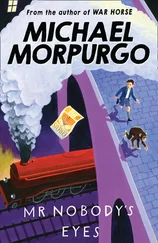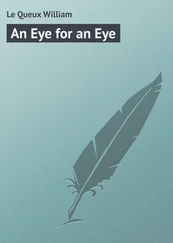Michael Martone - Seeing Eye
Здесь есть возможность читать онлайн «Michael Martone - Seeing Eye» весь текст электронной книги совершенно бесплатно (целиком полную версию без сокращений). В некоторых случаях можно слушать аудио, скачать через торрент в формате fb2 и присутствует краткое содержание. Год выпуска: 2013, Издательство: Dzanc Books, Жанр: Современная проза, на английском языке. Описание произведения, (предисловие) а так же отзывы посетителей доступны на портале библиотеки ЛибКат.
- Название:Seeing Eye
- Автор:
- Издательство:Dzanc Books
- Жанр:
- Год:2013
- ISBN:нет данных
- Рейтинг книги:5 / 5. Голосов: 1
-
Избранное:Добавить в избранное
- Отзывы:
-
Ваша оценка:
- 100
- 1
- 2
- 3
- 4
- 5
Seeing Eye: краткое содержание, описание и аннотация
Предлагаем к чтению аннотацию, описание, краткое содержание или предисловие (зависит от того, что написал сам автор книги «Seeing Eye»). Если вы не нашли необходимую информацию о книге — напишите в комментариях, мы постараемся отыскать её.
Seeing Eye — читать онлайн бесплатно полную книгу (весь текст) целиком
Ниже представлен текст книги, разбитый по страницам. Система сохранения места последней прочитанной страницы, позволяет с удобством читать онлайн бесплатно книгу «Seeing Eye», без необходимости каждый раз заново искать на чём Вы остановились. Поставьте закладку, и сможете в любой момент перейти на страницу, на которой закончили чтение.
Интервал:
Закладка:
“What are you doing down here?” the Marine says. He jogs toward us, skipping over cables. He wears a bowler hat and a short green jacket. We’re not supposed to be below but up above with the party. We hear them hailing the little sailboats and inboards swarming alongside. The branch has widened here, and the channel is newly dredged. The boats wallow in the wake of the tugs. We follow the volunteer aft along the gun deck. He’s from Highlandtown, a jarhead in Korea. He draws a pension from Bethlehem. Now he mends his uniforms for the summer of reenactments. “The Civil War’s the war,” he says. “The encampment down at Manassas is near as big as the battle was.” He slips in and out of character. There is so much to save now, he thinks. He’s part of the industry of preservation. We watch you climb the open ladder up into the night. I remember you climbing back into the upper berth of the Pullman we took to Chicago. That silly ladder hooked into the loft. With the overhead lights off, we had slid the shade up and left on the one pale blue light near my bed. There was no way for you to be graceful, each rung forced you to splay your knees apart. The train rocked. You threw your body into the bed above me. Below, my vantage all screwy, you foreshortened, and your toes turned white on the last step. You floated into a heaven of webbed luggage while the porter felt for our shoes in the locker by the door. I don’t tell the Marine this, but follow you up to the main deck, my face in your skirts.
The traffic helicopters from the television stations seem to be caught in the yards of the foremost tops. The pennants there begin to stir as if the light from the helicopters’ swivel-ing spots drove the air. The choppers pivot on the beams shining down. Their long, tapering tails stir around. Miss Ethel Ennis is singing a jazzed up version of the national anthem with the fort just off the starboard, and the guests can’t make up their minds if this rendition counts enough to settle down and salute. There is champagne with cold soft crab sandwiches. The Governor takes a turn at the helm, spinning the unconnected wheel after a brief toast. The cameras in the helicopters never stop moving. The lights on the deck spin beneath them. Watching the news tomorrow, we’ll be hungover enough to forget how to see, how to make the cameras pan. Instead the ship will roll and yaw, the masts raking at us dodging the streams of light.
Most of the dignitaries have been piped off the ship, sailing away in a fleet of speedboats toward Fells Point. We’ve talked the crew into letting us stow away to wait with them for the morning tide and the ride back to port. The band is packing up on the quarterdeck. The bass player, in shadow, wrestles the body of his instrument into the case. We watch the caterers break down the tables, snitch swipes of crab salad on crackers before it turns in the heat. The Constellation will ride the night out here in the bay with its skeleton crew. She’ll head in tomorrow with the tide, to her berth, her bowsprit now poking in toward the upper windows of the shopping mall she poses next to. She’ll weather more evenly, the Marine had said, the weather hitting her like a slower broadside. We watch the divers in the dark water. Their heads tip forward. They disappear together. They are inspecting the hull. Blind, they feel along the keel and try to imagine what has cemented itself to the old copper sheets below the waterline. We wait for the divers to surface, their black rubber suits shedding the light of the full moon, an oily sheen. We try to guess where they’ll appear in the black water, but they never do.
I say, “A friend of mine died, and he had always wanted to be buried from his boat, wrapped in a sail and tipped overboard into the bay. His will charged a group of us with handling the details. So we looked into it. We thought it would be simple, a few pieces of paper. But the state of Maryland requires a crypt with the coffin, a big concrete vault that would have sunk his little boat if we even could have gotten it onboard. We thought of hiring a dredge with enough room for the casket and its casket, and we realized the estate would be eaten up by the costs. The body still had to be embalmed, permits obtained for dumping chemicals into the water. So, on a night like this, we wrapped the body up in canvas and lead sinkers and sailed out to the ship channel, where the tankers rode at anchor as they waited for a chance to dock, and dropped him in the deepest water we could find inside the Bay Bridge. We buried the empty casket in a crypt in a cemetery on Belair Road.”
You say, “You are such a liar. Who was this friend who died? Who were the friends who helped you? Did you buy off the undertaker to look the other way when you loaded the body into the trunk of your car? Wouldn’t the body be tonged up by some startled waterman sooner or later? I know you too well. I’ve heard you tell the story at too many barbecues with a glass of champagne you use as a model of the little ketch heeling in the bay and in the lobbies of funeral homes where your real dead friends are being shown. After you’ve taken a glance at the body, you say, A ghastly business, this viewing.’ And in some versions, it isn’t even you at the tiller on that moonlit night. Another friend of yours has done the deed. He has told you the story at a wake of a mutual buddy as you stand by the body. A cold nose, like a luffing sail, just shows above the open hatch of the casket with its spray of taffeta. But I love the story because it is the story you tell over and over. It’s a spell, another form with carbons, to ward off the bureaucracy of time. It is a bribe to get around the rules. You’ve lived through another night. You’ve buried your stand-in at sea. You whisper the story in the parlors of funeral homes while, kneeling near the body in the next room, the old women race through the rosary, the sorrowful and the joyful mysteries. Listen, the last stitch the sailmaker made when he made the shroud at sea went through the stiff’s nose. A detail from a book I read. Its pages sewn together too, that ancient repetitive gesture of time and storytelling.”
The moon is so fat it can’t lift itself much higher than the Key Bridge, a fresh suture in the sky. Its mealy face is ready to blister like paint on a balloon. The old skin will slough off. This has been going on a long time, this moon turning old. There is enough light to wash out the stars after all. Mars, always heading toward us, follows the moon toward Virginia. The very old light from the biggest stars happens to reach our eyes at this moment. We are stretched out on the deck looking up through the nets in the rigging. The live oak in her frame is decaying in measurable amounts, an ambient rot. The souvenir program says the wood is original, America’s secret weapon. It gets harder in brine. They couldn’t work it two hundred years ago. When they pulled it from the swamps and bogs of the Carolinas, their saws and chisels blunted. My tux is rented, has its own history of sweat. Along my back, I feel the splinters of radiation prickle my body with its own stores of carbon, its rings of skin. I say that sliver of wood in my hand will fester, the infection will streak toward my heart. “Baby,” you say, “it will work its way out.”
The telescope they sent up into space was supposed to prove there are other planets around the suns we see as stars. It is floating above us now, a blind hulk, its perfect mirror ground to the wrong formula. All that preserved junk of fabricated senses spirals around us as we spin. I would have aimed the thing back down at us, a civil spy satellite, with a bank of scientists interpreting the semaphore of, say, two human bodies in a bed, reading them like letters on a page.
Getting ready for the day, the crew is hoisting signal flags, pennants, ensigns, and Perry’s battle flag quoting the dying Lawrence on the Chesapeake. There are no poems for this ship. Who remembers the quasi-war with France, Truxtun, the hostages held by the beys of the Middle East? Here we are, drowsy, on watch on the poop of an old ship. The moon has gone, and the breeze has freshened, blowing the swamp away toward the Eastern Shore. There the stars are finally opening their eyes, and nobody can see us.
Читать дальшеИнтервал:
Закладка:
Похожие книги на «Seeing Eye»
Представляем Вашему вниманию похожие книги на «Seeing Eye» списком для выбора. Мы отобрали схожую по названию и смыслу литературу в надежде предоставить читателям больше вариантов отыскать новые, интересные, ещё непрочитанные произведения.
Обсуждение, отзывы о книге «Seeing Eye» и просто собственные мнения читателей. Оставьте ваши комментарии, напишите, что Вы думаете о произведении, его смысле или главных героях. Укажите что конкретно понравилось, а что нет, и почему Вы так считаете.












